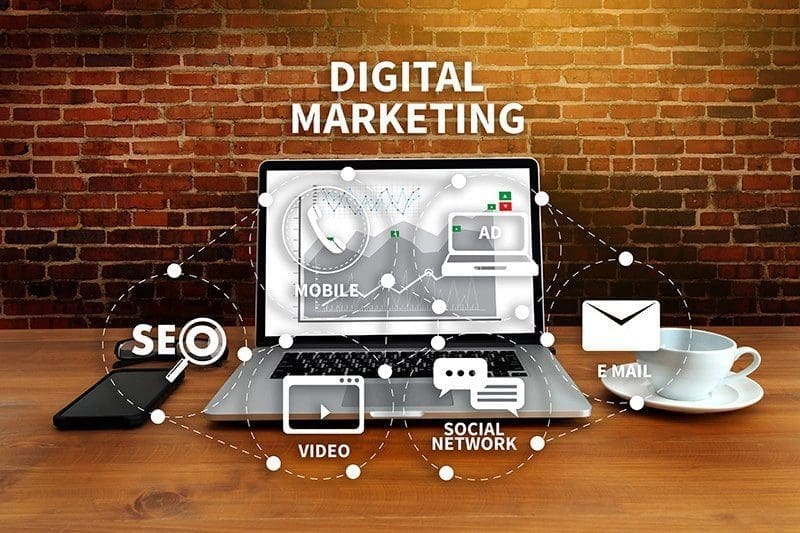Where to Start, What to Do
So lately at work I’ve been talking with the team about taking another look at our digital marketing strategy and how we can take things up a notch or two. So in reviewing my own B2B digital marketing strategy, I thought I’d outline some key steps that I’ll be taking in hopes it can help some of you out with your own marketing efforts. Effectiveness is what we’re all after and hopefully with my thoughts below you’ll have a solid foundation for developing your own successful B2B (business to business) digital marketing strategies.
Here’s an outline that we’ll go through
- Digital marketing strategy definition
- Digital media – what is it
- B2B differences
- Define your business goals – what do you want to achieve
- Research your target audience – who are they, where do they hang out online, what do they care about
- Create buyer personas – these will help you understand your target audience better and create content that appeals to them
- Develop a content strategy – what kind of content will you create and publish, and on which platforms
- Promote your content – how will you get people to see and engage with your content
- Typical tactics to use
- Analyze and adjust – track your results and make changes to improve your performance over time
Ready, set go!

Digital marketing strategy definition
Let’s first start with a definition. A B2B digital marketing strategy is a plan for your business operations using digital platforms and channels to reach your audience, achieve your business goals, and measure the results. It’s basically a comprehensive roadmap for how you will use digital media to increase brand awareness, drive website traffic, generate leads, and ultimately convert prospects into customers.
Digital media – what is it
Digital media is essentially digital content that can be disseminated and consumed via digital marketing tactics like websites, apps, social media marketing, search engines, email etc. The digital media in business marketing arena includes video, audio, images, text, infographics and other digital formats used to engage with your target audience.
B2B Differences
As you know, I play in the B2B realm with nearly all of my marketing work and fun. Some differences from consumer marketing is that in B2B you are dealing with a more complex buying process and longer sales cycle. These can go from 12-18 months and beyond depending on the situation. You need to be focused on building relationships with potential customers in order to get them to trust you and eventually purchase from you. It also involves truly dissecting the sales cycle particularly when it comes to content. What information is needed at each stage of the sales cycle and how do you deliver that? This essentially maps out your buyer’s journey.

With digital marketing, this means creating content that is useful, informative, educational, and brings value to your target businesses’ audience. You’ll want to speak their language but also go beyond that by providing a level of expertise that sets you apart from your competitors.
Ok, now that we have a clear understanding of what we’re working with, let’s dive in.
Define your business goals – what do you want to achieve
When designing a digital strategy for your B2B business, or business to business marketing only, it’s important to define what goals you want to achieve with it. To have an effective strategy, you must look at the whole picture, which includes goals such as increasing website traffic, session time and lead generation. Additionally, goals like reducing customer churn rate and raising brand visibility should also be taken into consideration. Understanding what goals you want to reach is the key to creating an effective digital marketing strategy that will help take your business to the next level.
Research your target audience – who are they, where do they hang out online, what do they care about
Crafting an effective digital strategy for your B2B marketing goals starts with research. Take time to research and identify your audience. Who are they? Where do they hang out online? What do they care about? Knowing who you’re speaking to is essential in creating relevant, value-oriented content that resonates with your audience and speaks to their individual needs. Once you gain a good understanding of who you’re targeting, you can begin to develop engaging campaigns promoting products that showcase the value that your brand brings to customers.
Also, performing a competitor analysis might uncover some other businesses or things that they are doing well, in addition to some opportunities for you!
Create buyer personas – these will help you understand your target audience better and craft content that appeals to them
Crafting a successful digital marketing strategy for your B2B clients starts with understanding who makes up the audience. Buyer personas are an essential tool to get you there by helping you gain deeper knowledge about your clients’ buyers. Personas provide insights about the individual consumers’ roles within the buying process, their motivations for purchasing, and what kind of content resonates with them. Armed with this information, you can create an effective digital marketing plan that speaks to the needs of your audience.
Develop a content strategy – what kind of content will you create and publish, and on which platforms
Content marketing is key to engaging your B2B audience and helping them understand how you can help solve their problems. As part of your digital marketing strategy, you’ll need to develop a clear content strategy that outlines what content you will create, publish and promote on social media platforms. You should determine the content that will best deliver your key messages to your target market and explain why each content piece is beneficial for both your business and the user. Ultimately, creating content tailored to your audience on the platforms they frequent will be essential in generating leads and inspiring engagement from potential customers.
Promote your content – how will you get people to see and engage with your content
Promoting your content is essential for getting people to actually see it, let alone engage with it. Promoting doesn’t have to be complicated though – there are many simple tips that can help you drive traffic and start conversations about your content. Additionally, don’t forget the power of using social media channels to communicate with customers and potential buyers. Promote your content on these platforms in a way that resonates with them, create buzz, and increase engagement. There are many options out there when it comes to promoting your company website or digital marketing strategy’s content – choose well and watch the number of views skyrocket.
Digital marketing tactics
There are so many digital marketing tactics out there, it really comes down to finding the right mix for your audience. For our B2B marketing discussion, digital tactics like search engine optimization (SEO), content marketing, email campaigns, social media marketing, webinars/seminars, PPC ads/campaigns, influencer marketing, and digital advertising are key. These digital strategies can be effective in reaching a wide audience to generate leads and increase visibility for your brand. Additionally, using digital influencers can also be an effective tactic in getting the word out to potential clients. By leveraging digital influencers’ reach, you have the potential to access an even larger audience than before.

Search engine marketing
Search engine marketing (SEM) is a digital marketing strategy that focuses on the “paid” elements of digital marketing. This includes things like pay-per-click (PPC) advertising on platforms such as Google Ads and Bing Ads, as well as paid ads such as display ads and remarketing campaigns for increased visibility. SEM also includes other digital marketing tactics such as SEO
Search engine optimization
Search engine optimization (SEO) is the digital marketing strategy that focuses on “organic” elements of digital marketing, such as content and website structure. SEO looks at how search engines work and what users are looking for when they make a search query to deliver relevant, high-quality results. SEO is essential for getting your digital marketing campaigns seen by your target audience. By optimizing the content you create and the structure of your website, you make it easier for search engines to understand what your digital marketing is about and display it in the right places. Ultimately, SEO efforts are an important digital marketing strategy that can help ensure visibility and success in digital channels.
Content marketing
Content marketing is a digital marketing strategy that involves creating, publishing, and promoting content with the purpose of building relationships and providing valuable information to your audience. This includes all forms of digital media, such as blogs, videos, podcasts, and more. Creating valuable content tailored to your audience will help you attract them to your digital channels and build relationships with them. Content marketing is an important digital marketing strategy for building trust and create engaging content with your target audience, leading to more conversions.
Email campaigns
Email marketing campaigns are digital marketing strategies used to reach your target audience with timely, relevant information. They can range from promotional emails that introduce new products or services to newsletters that inform your subscribers about updates in the industry. They are effective channels to engage with potential customers and nurture them through the sales process. Additionally, email campaigns help you build relationships with existing and new customers and keep them updated on your digital marketing strategy.
Social media marketing
Social media is a digital marketing strategy that focuses on connecting with your target audience through digital platforms, such as LinkedIn, Twitter, Instagram, and more. Using social media allows you to build relationships with potential customers, increase visibility for your digital campaigns, and drive conversions. Additionally, it can help you gain valuable insights about your audience and their digital behavior.
Webinars/seminars
Webinars or seminars are digital marketing strategies used to engage with your target audience in a more interactive way. They provide an opportunity for you to create meaningful conversations with potential customers and make sure they understand your brand positioning and digital marketing strategy. Additionally, webinars/seminars can help you reach a wider audience in less time and cost-effectively compared to traditional methods.
Digital advertising
Digital marketing refers to advertising that uses digital platforms, such as Google Ads and LinkedIn Ads, to display ads to people who are likely interested in the products or services you offer. Using digital advertising helps you increase visibility and reach a wider audience with tailored messages that speak directly to your target customers. Additionally, digital advertising can help you track the performance of your digital campaigns so you know which ones are working and which ones need improvement.
PPC (pay-per-click) Ads / PPC campaigns
PPC ads and PPC campaigns are B2B digital marketing strategies used to drive targeted traffic to your website. This strategy involves creating digital ads that target users based on their search queries or interests. When someone clicks on the ad, you pay a fee and they are taken to your digital marketing channel where they can learn more about what you have to offer. PPC campaigns help you reach your target audience with targeted messages tailored to their interests and increase visibility for your digital marketing strategy. Additionally, it helps you track results and optimize performance of your digital campaigns.
Overall, digital marketing strategies are essential for any digital campaign. By understanding each strategy and how they work together, you can create digital campaigns that are effective and help you reach your goals. Whether it’s SEO, content marketing, email campaigns, social media marketing, webinars/seminars or digital advertising, digital strategies will play an important role in any digital marketing mix or strategy.
Analyze and adjust – track your results and make changes to improve your performance over time
Knowing the metrics and analytics of your digital marketing strategy for a B2B business is key to success. You must analyze the results of each marketing channels and tactic, adjust where applicable, and continue to track them over time to ensure that your performance is improving. Finding the metrics that are important for your business and setting goals will help you determine success and failure, making it easier to adjust what’s working and what isn’t in real-time so you can make sure your digital strategy is as effective as possible.
Summary
If you want to create a digital marketing strategy that delivers results, following the steps outlined above is a great place to start. Defining your goals, understanding your target audience, and creating compelling content are all key ingredients in a successful recipe for online marketing success. And don’t forget to track your progress and make adjustments along the way – even the best chefs need to taste their dishes as they go!
What do you think? Are there any other elements you would add to the above? Let me know in the comments below!


